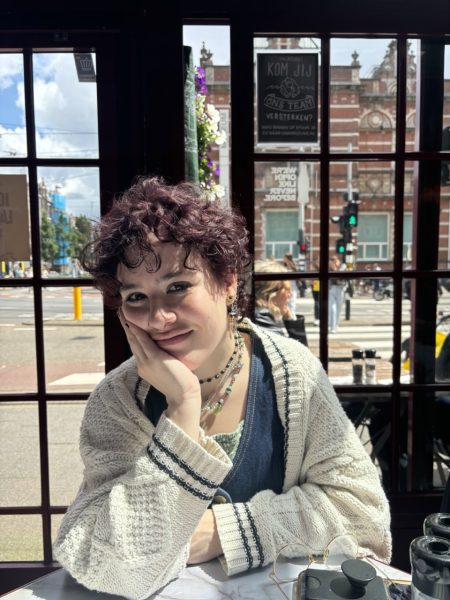Doris Morgan Rueda was studying criminology and planning to go to law school before slightly changing course. She realized that what she loved so much about studying law was the historical background of it. She then began to examine history and law together.
An assistant professor in the Department of History, her studies center around Latinx history and their past treatment by the court system, specifically the treatment of Latinx children in juvenile detention centers.
As a first-generation scholar, Morgan Rueda attributes much of that experience to her pride in where she is today.
“I was in a classroom as an undergrad, and a teacher asked for folks whose parents had gone to college to raise their hands,” Morgan Rueda said. “And when I looked around, I realized I was the only one not raising my hand.”
She said the experience gave her a sense of purpose and family fulfillment. Her choice to go to school inspired her mother to attend college.
“Seeing my mom graduate from college when I was doing my master’s and helping her with her classes is a really beautiful moment, and it kind of reminded me that, you know, it’s the power to transform a whole family, not just an individual,” Morgan Rueda said.
During a Clio Talks lecture held by the history department Wednesday in Anne Belk Hall, Morgan Rueda discussed her past and upcoming work, highlighting the importance of telling Latinx stories that have been forgotten over time. When elaborating, she related it to first-generation students in American history classes.
“I really ideally want all my students to feel reflected in my classrooms, and I try to bring up folks from all different kinds of backgrounds so they can see that there’s a variety of experiences in the past, just like there’s a variety of experiences in the present,” Morgan Rueda said.
In her studies, she found Latinx children are often treated as if they have no voice, so shedding light on their stories is important. She recognized the trauma they obtain from these juvenile detention centers as a direct result of the justice system not doing its part in protecting them.
“I think we do a disservice when we don’t really examine these systems critically and that means kind of really taking a look at the focus of these programs which is children and what do they have to say?” Morgan Rueda said. “What are their experiences like? Like, why aren’t we listening to children?”
Morgan Rueda discussed the contents in her book, which is set to be released in 2027 with the tentative title, “Juan Crow, Juvenile Justice, Doing Time in the Arizona Borderlands.”
Morgan Rueda said the borderlands, which are more rural areas, are often forgotten by the law. She emphasized these stories can’t get lost just because they aren’t in densely populated cities.
Morgan Rueda will begin teaching her class, Latinx and The Law, in the spring semester of 2026. This class is the first of its kind at App State, and focuses on viewing Latinx history through a legal lens rather than a cultural one.
She not only hopes to connect with students who want to be historians, but also with students who have the desire to go into law as well. The course will cover desegregation in schools and in general.
Morgan Rueda said she is eager to bring together both of her studies, shedding light on a community that has been overlooked in the past and overshadowed both culturally and legally.
“I always wanted to bring these two worlds together,” Morgan Rueda said. “I was like this is exactly what I do. It’s Latinx legal history.”



